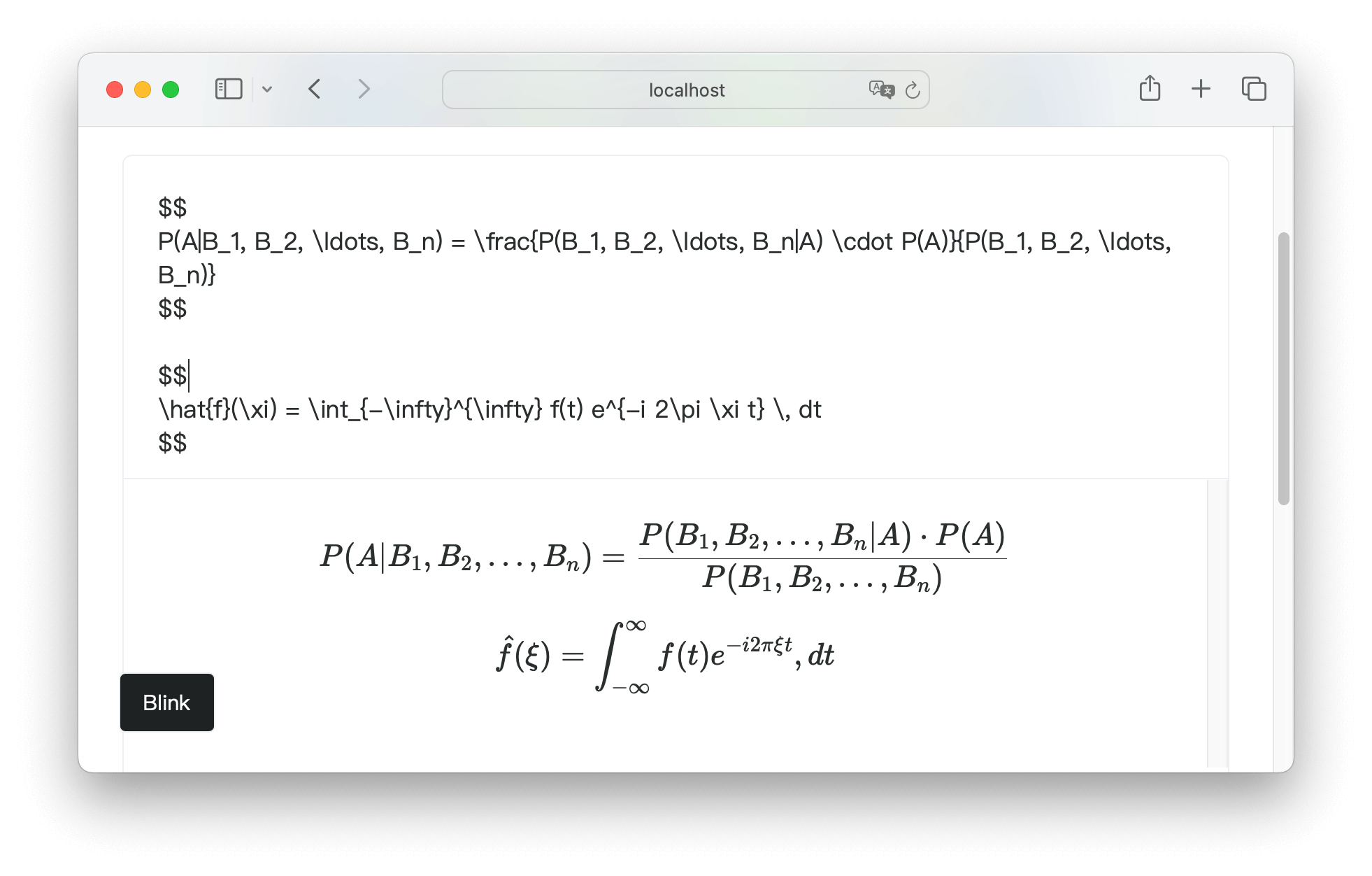LaTeX
For academic websites, LaTeX support is essential. You can use Katex, a widely-used LaTeX syntax parser in the frontend, to implement this functionality. To maintain simplicity, Artalk does not natively include LaTeX syntax parsing capabilities. However, you can manually incorporate Katex and the Artalk Katex plugin into your page to enable LaTeX syntax support in the comment system.
html
<!-- 1. Include Katex -->
<link rel="stylesheet" href="https://unpkg.com/katex@0.16.7/dist/katex.min.css" />
<script src="https://unpkg.com/katex@0.16.7/dist/katex.min.js"></script>
<!-- 2. Include Artalk -->
<link href="/lib/artalk/Artalk.css" rel="stylesheet" />
<script src="/lib/artalk/Artalk.js"></script>
<!-- 3. Include Artalk Katex Plugin -->
<script src="https://unpkg.com/@artalk/plugin-katex/dist/artalk-plugin-katex.js"></script>ts
// pnpm add katex @artalk/plugin-katex
import Artalk from 'artalk'
import { ArtalkKatexPlugin } from '@artalk/plugin-katex'
import 'katex/dist/katex.min.css'
Artalk.use(ArtalkKatexPlugin)You can post a comment:
md
$$
P(A|B_1, B_2, \ldots, B_n) = \frac{P(B_1, B_2, \ldots, B_n|A) \cdot P(A)}{P(B_1, B_2, \ldots, B_n)}
$$Check the result:

 qwqcode
qwqcode Mr.Hope
Mr.Hope pluveto
pluveto